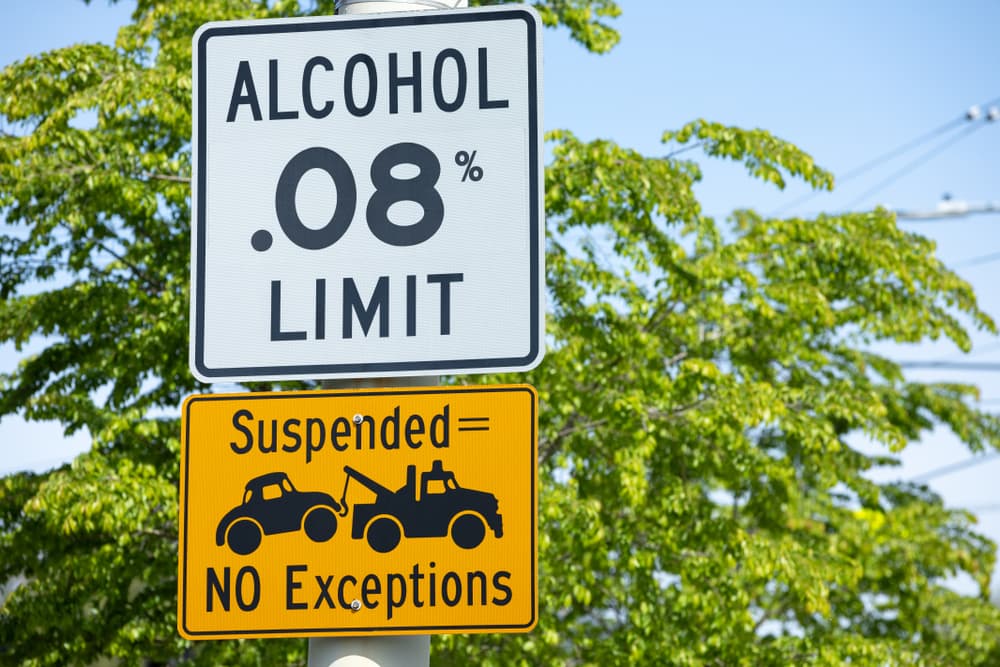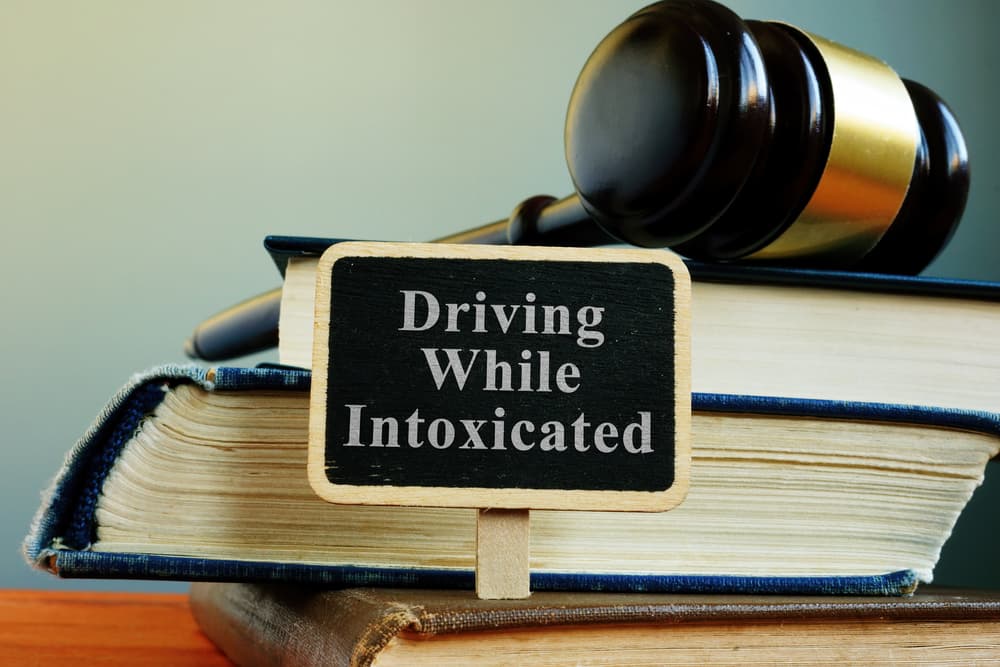If you face a First DWI, you might spend time in jail—about 24 hours to 6 months. Aggravating factors increase time, and mitigating factors reduce it.
The court may impose fines, community service, and probation instead of jail if no aggravating factors exist.
In some instances, the judge may sentence the defendant to an alcohol treatment program. Fines may range from $200 to $4,000, a driver's license suspension for at least a year, alcohol education or treatment, and higher auto insurance.
You should always contact a Beaufort DWI attorney if you find yourself in this situation. They will ensure your rights are protected and explore all of your legal options.
Schedule Your Free Consultation
What Is a BAC?

A person facing their first DUI accusation enters a detailed legal process where the outcome is largely dependent on certain variables. When deciding on punishments, one important consideration is the blood alcohol content during the arrest.
The law defines legal impairment as a blood alcohol content (BAC) of 0.08 percent or more. However, authorities typically impose more serious penalties at 0.15 percent or higher.
Suspending a Driver’s License
First-time offenders often have their driver's license suspended for a year after a minimum 30-day instant civil revocation. Limited driving rights may be granted following a waiting period, enabling travel to court-mandated treatment programs, employment, or educational institutions.
Factors that make the offense more serious and increase the potential for jail time include:
- High Blood Alcohol Concentration (BAC): A blood alcohol concentration or BAC significantly above the legal limit (0.08 percent) demonstrates a greater level of impairment and disregard for safety.
- Causing an Accident: If the DWI resulted in property damage, injury, or death, the consequences become much more severe, and jail time is more likely.
- Driving While Intoxicated with a Child in the Car: Driving under the influence with a child passenger in your car can lead to a harsher sentence.
- Prior Convictions: While this is a first-time DWI, previous convictions for other offenses, especially traffic violations, can affect the judge's decision.
The above list of factors has unwanted consequences, especially if you don’t rely on a DWI lawyer’s help.
Mitigating Circumstances
Factors that mitigate a first-time DWI, which reduces jail time, include:
- Low BAC: The court may view a BAC slightly above the legal limit more leniently, especially if there were no other aggravating factors.
- Voluntary Cooperation: Complying with law enforcement, taking a breathalyzer test, and not resisting arrest shows you’re cooperative.
- Completion of Alcohol Education or Treatment: Showing a commitment to addressing any alcohol-related issues can be seen favorably by the court.
- Lack of Prior Convictions: A clean driving record and no criminal history can work in the defendant's favor.
You can count on a DWI lawyer to improve sentencing and experience a better outcome.
Completing a Substance Abuse Program
Completing a substance abuse evaluation and following treatment recommendations is frequently mandated by courts. Usually, this involves going to counseling sessions or alcohol education programs. These programs can cost from $500 to $2,500, and the offender is responsible for paying them.
Community Service
Alternative sentencing may involve community service or supervised probation. You may have to agree to community service from 24 to 100 hours. Staying sober, submitting to random alcohol testing, and attending frequent sessions with a probation officer support these sentences.
IID Installation
You may have to agree to install an ignition interlock device (IID), especially when the blood alcohol content is higher. The offender must maintain this device for a predetermined time, typically six months to a year. An IID stops the car from operating when the driver drinks.
Why You Need a DWI Lawyer’s Help
If you have a lawyer helping you, they can:

- Review the case's specific circumstances and identify potential aggravating or mitigating factors.
- Strategize a strong defense - aimed at achieving the best possible outcome.
- Negotiate your case to reduce fees.
- Represent you during a trial and convincingly argue your case.
Professional legal representation can help you successfully sail through rough legal waters. A skilled DUI attorney can contest the evidence, bargain with the prosecution, and possibly win a better outcome. For example, they might question the accuracy of breathalyzer results or point out procedural flaws during field sobriety tests.
How a DWI Can Affect Your Life Outside the Courtroom
You also have to consider the future repercussions outside the courtroom.
Increased Insurance Prices
The financial impact goes beyond short-term fines imposed by the law. After a DWI conviction, insurance rates rise dramatically, frequently doubling or tripling for a few years. If insurance firms withdraw coverage, individuals may pay costly high-risk insurance premiums.
Job Loss and Future Employment Opportunities
Professionals who drive as part of their job responsibilities may face serious employment repercussions. Some employers may limit employment responsibilities or possibilities for growth, while others may have obligatory termination rules for DUI convictions.
Expungement
A criminal record may affect future job openings, housing applications, and educational chances. After a time, depending on the state, a first offense might qualify for expungement. You’ll need to get help from a DWI attorney to determine if you qualify or the law allows it in your state.
Making a More Informed Decision

When people know the full extent of the repercussions, they can better decide about their defense plan and future decisions. Beyond the immediate legal repercussions, a DWI conviction has long-term effects on many facets of one's personal and professional life.
Understanding the consequences of a DUI conviction is essential for making informed decisions about your legal defense and future actions. The impact extends beyond immediate legal penalties.
An experienced DWI attorney can support better legal results by:
- Discussing and identifying potential aggravating or mitigating factors.
- Building a strong defense strategy aimed at achieving the best possible outcome.
- Negotiating with the prosecution for reduced charges or alternative sentencing options.
- Representing the defendant in court and advocating for their rights.
You may make errors or forfeit better case results without an objective legal advocate.
A DWI Attorney is Standing By
While jail time is possible for a first-time DWI, the outcome depends on various factors. By understanding these factors and seeking an experienced DWI attorney, individuals can get through the legal process more effectively and work towards the best possible resolution.
If authorities arrest you for DWI, call a criminal defense lawyer. By retaining legal help, you’ll spend less time in jail and move forward more positively.